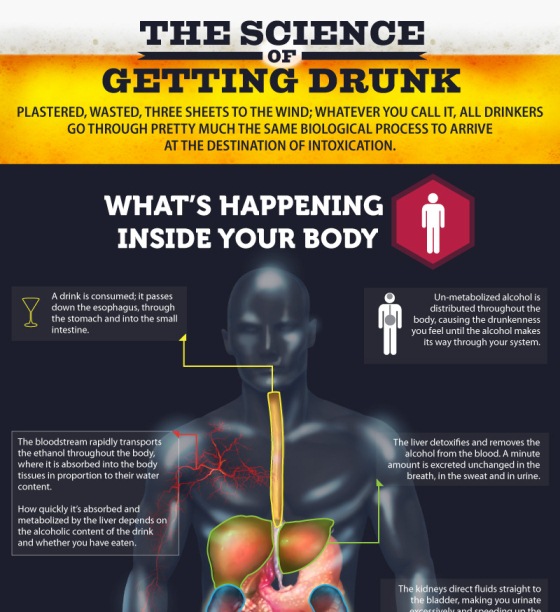Discover the fascinating science behind reaching intoxication as we explore the correlation between beer consumption and drunkenness levels.

Image courtesy of Anete Lusina via Pexels
Table of Contents
Have you ever wondered how many beers it takes to get drunk? It’s a question that has crossed the minds of many individuals at some point in their lives. The answer is not as straightforward as one might think, as there are several factors that come into play when it comes to alcohol consumption and intoxication levels.
Understanding how alcohol affects the body and the varying tolerance levels among individuals is crucial for making informed decisions about drinking. In this blog post, we will delve into the science behind alcohol metabolism, explore the concept of individual tolerance levels, and discuss the various factors that influence intoxication.
The Science Behind Alcohol Metabolism
Alcohol is metabolized primarily in the liver through a series of chemical reactions. When you consume alcohol, it is absorbed into the bloodstream and distributed throughout the body. Enzymes in the liver, such as alcohol dehydrogenase and acetaldehyde through work to break down alcohol into acetaldehyde and eventually into harmless byproducts.
Several factors can affect how quickly alcohol is metabolized in the body. These include age, gender, weight, and genetic factors. For example, younger individuals tend to metabolize alcohol more quickly than older individuals due to differences in enzyme activity. Similarly, men typically have a higher alcohol tolerance than women due to differences in body composition and enzyme levels.
Individual Tolerance Levels
Alcohol tolerance refers to the amount of alcohol a person can consume before experiencing the effects of intoxication. Factors that contribute to individual tolerance levels include genetics, liver health, and overall drinking habits. Some individuals may have a higher tolerance for alcohol due to genetic factors that affect enzyme activity, while others may have a lower tolerance due to liver damage or medication interactions.
It is essential for individuals to recognize their own tolerance levels and know when to stop drinking. Signs of intoxication include impaired coordination, slurred speech, and impaired judgment. If you begin to experience these symptoms, it’s a clear indication that you’ve had too much to drink and should stop consuming alcohol.
Influencing Factors on Intoxication
Several external factors can influence how quickly you become intoxicated when consuming alcohol. One significant factor is food consumption. Eating a meal before or while drinking can slow down the absorption of alcohol into the bloodstream, reducing the risk of becoming intoxicated quickly.

Image courtesy of via Google Images
Hydration also plays a role in alcohol absorption. Drinking water in between alcoholic beverages can help to dilute the alcohol in your system and prevent dehydration, which can worsen the effects of intoxication. Additionally, the rate at which you consume alcohol can impact how quickly you become drunk. Drinking quickly can lead to higher blood alcohol levels and increased intoxication.
The type of alcohol you consume can also affect how quickly you become intoxicated. Beverages with higher alcohol content, such as spirits and cocktails, will lead to faster intoxication compared to beer or wine. Knowing the alcohol content of the beverages you’re consuming can help you make informed choices about how much to drink.
Conclusion
Understanding the science behind alcohol metabolism, individual tolerance levels, and the factors that influence intoxication is key to making responsible choices about drinking By being aware of your own limits and recognizing the signs of intoxication, you can enjoy alcohol in moderation and minimize the risks associated with excessive drinking.
Remember, there is no one-size-fits-all answer to the question of how many beers it takes to get drunk. It varies from person to person and depends on a range of factors. By staying informed and practicing responsible drinking habits, you can enjoy alcohol safely and responsibly.
Frequently Asked Questions
How does alcohol affect the body?
Alcohol is metabolized in the liver, where enzymes break it down into harmless byproducts. It is absorbed into the bloodstream and affects the central nervous system, leading to the characteristic effects of intoxication.
What factors influence individual tolerance levels?
Genetics, liver health, and overall drinking habits play a role in determining a person’s alcohol tolerance. Enzyme activity, liver function, and medication interactions can all impact how quickly someone becomes intoxicated.
How can I prevent intoxication?
Eating before or while drinking can slow alcohol absorption. Hydrating with water in between drinks helps dilute alcohol levels. Monitoring your alcohol consumption rate and choosing beverages with lower alcohol content can also help prevent rapid intoxication.
Is there a universal number of beers to reach intoxication?
No, the number of beers required to reach intoxication varies among individuals. Factors like age, weight, gender, and rate of consumption all play a role in determining how much alcohol it takes for someone to become drunk.
Powered by Texta.ai Blog Automation
Leave a Reply